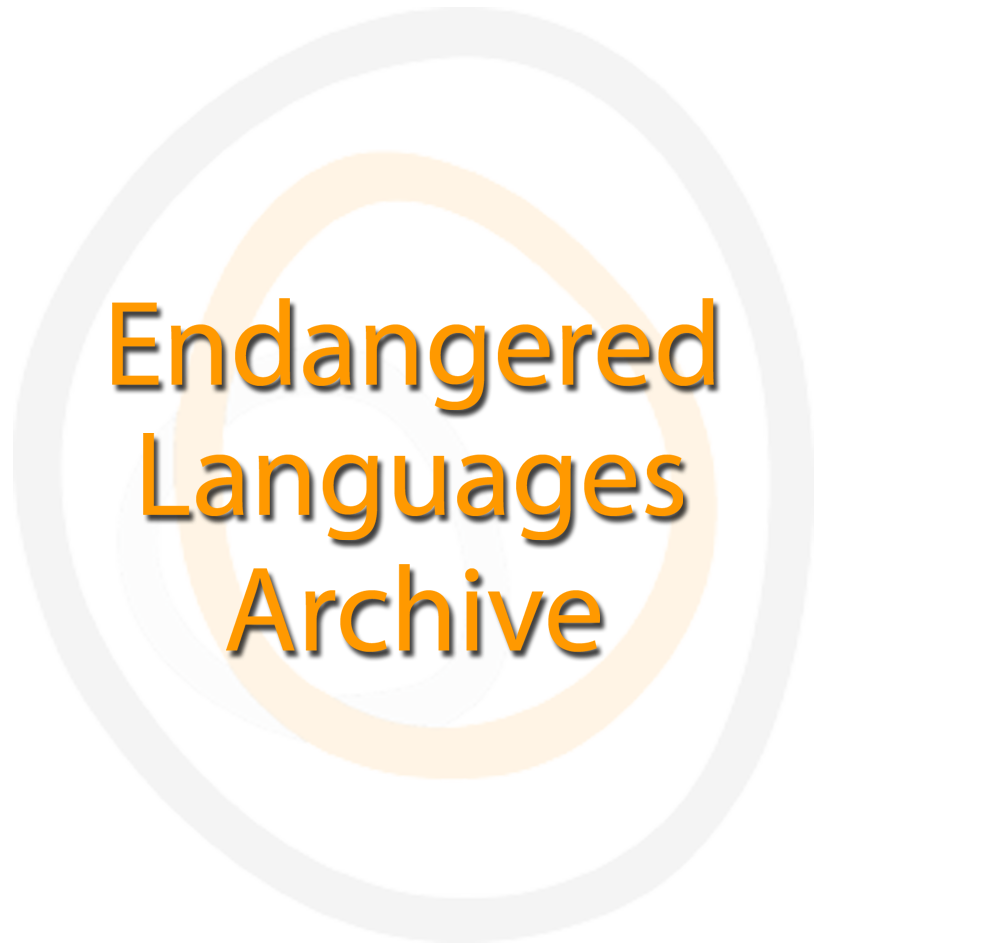Cicipu documentation
| Language | Cicipu |
| Depositor | Stuart McGill |
| Affiliation | SOAS University of London |
| Location | Nigeria |
| Collection ID | 0052 |
| Grant ID | FTG0102, SG0105 |
| Funding Body | ELDP |
| Collection Status | Collection online |
| Landing Page Handle | http://hdl.handle.net/2196/2a58872e-8cbd-43f7-ab85-ef55e1328e3e |
Summary of the collection
This corpus contains folktales, riddles, historical narratives, casual conversation, commnetaries on festival videos, interviews, songs, prayers, and sermons. Nine Pear Film narratives are also included. In total there are approximately six hours of interlinearised time-aligned texts are provided in Toolbox/ELAN format. The corpus also contains an accompanying lexicon in Toolbox format, collected from the texts as well as from the SIL Africa Area 1700-item wordlist. A large number of elicitation sessions are also provided (conducted in either Hausa or Cicipu). GPS data of the Cicipu area is included.
Group represented
The Acipu of Kebbi and Niger State, Nigeria
The Acipu’s culture appears to be distinct from the surrounding peoples in a number of ways. Gunn and Conant (1960) consider them a “remnant” (unfortunately they do not say why). Several other larger West Kainji groups claim descent from the Acipawa (Temple 1922, Stewart 1980, Dettweiler and Dettweiler 2002a). They are head- rather than shoulder-carriers, uniquely amongst the peoples of the Middle Niger (Gunn and Conant 1960).
The Acipu are surrounded by three larger language communities – the Dukawa, the Lelna, and the Avadi, who speak Duka, C’Lela, and Kambari respectively. In their traditional towns the Acipu now appear to be a minority, and they mainly live in villages (CAPRO 1995, the main source for this section). Younger Acipu speak C’Lela and Kambari, and everyone speaks Hausa, a widespread lingua franca to which many peoples of northern Nigeria are shifting, including groups much larger than the Acipawa (e.g. Goemai and Reshe). Both the Acipu and the neighbouring groups see Western Acipa as a distinct language.
Language information
The Western Acipa language (Ethnologue code AWC) is spoken in northwest Nigeria, in the Sakaba Local Government Area of Kebbi State. It is also known as Acipanci in Hausa, and as Cipu, while the autonym is Tə-Səgəmuk. Population estimates for the Acipu vary between 10-30,000.
Western Acipa belongs to the West Kainji subgroup of Benue-Congo. Factors pointing towards language maintenance (Blench 1998) may include government oppression/neglect, remoteness, and the general demographics of Nigeria. Factors pointing towards endangerment may include the influence of Hausa, no orthography/literature/language programme, the fact that their chiefs seem to be mainly Hausas (Dettweiler and Dettweiler and 2002a), and possible encroachment on their traditional lands by the Kambari, Dukawa, and Lelna (David Heath, p.c.). Western Acipa is not written.
Special characteristics
The collection includes A. B. Mathews’ ‘Historical and anthropological report on the Achifawa’, an unpublished typewritten manuscript from 1926. There is a physical copy in the National Archives, Kaduna (K2, 068), from which the electronic copy in this corpus was photographed.
Collection history
The collection was created by Stuart McGill during a PhD project and subsequent postdoctoral fellowship at SOAS. It has since been substantially augmented by native speaker documenters Mohammed Mallam and Markus Yabani.
The exact types of texts recorded were decided in the field, and were partially dependent on what can be learned from the Acipa conceptualisation of communicative events. Mathews (1926) and CAPRO (1995) provide detailed accounts of traditional Acipa practices, and these served as starting points for negotiating which events to record. Both planned and unplanned genres were included, covering at least several instances of the following: greetings, conversations, hortative discourse, narratives, procedural, and ritual discourse. Because the language is virtually undocumented, a significant amount of time was devoted at the start of the first field trip to basic phonemic and morphosyntactic analysis, along with language-learning.
Acknowledgement and citation
To refer to any data from the collection, please cite as follows:
McGill, Stuart. 2012. Cicipu documentation. Endangered Languages Archive. Handle: http://hdl.handle.net/2196/00-0000-0000-0001-7D83-D. Accessed on [insert date here].


